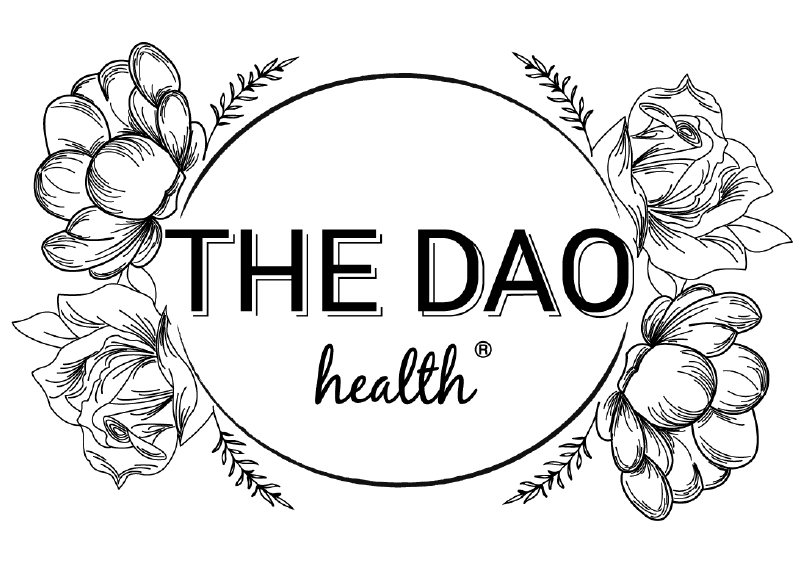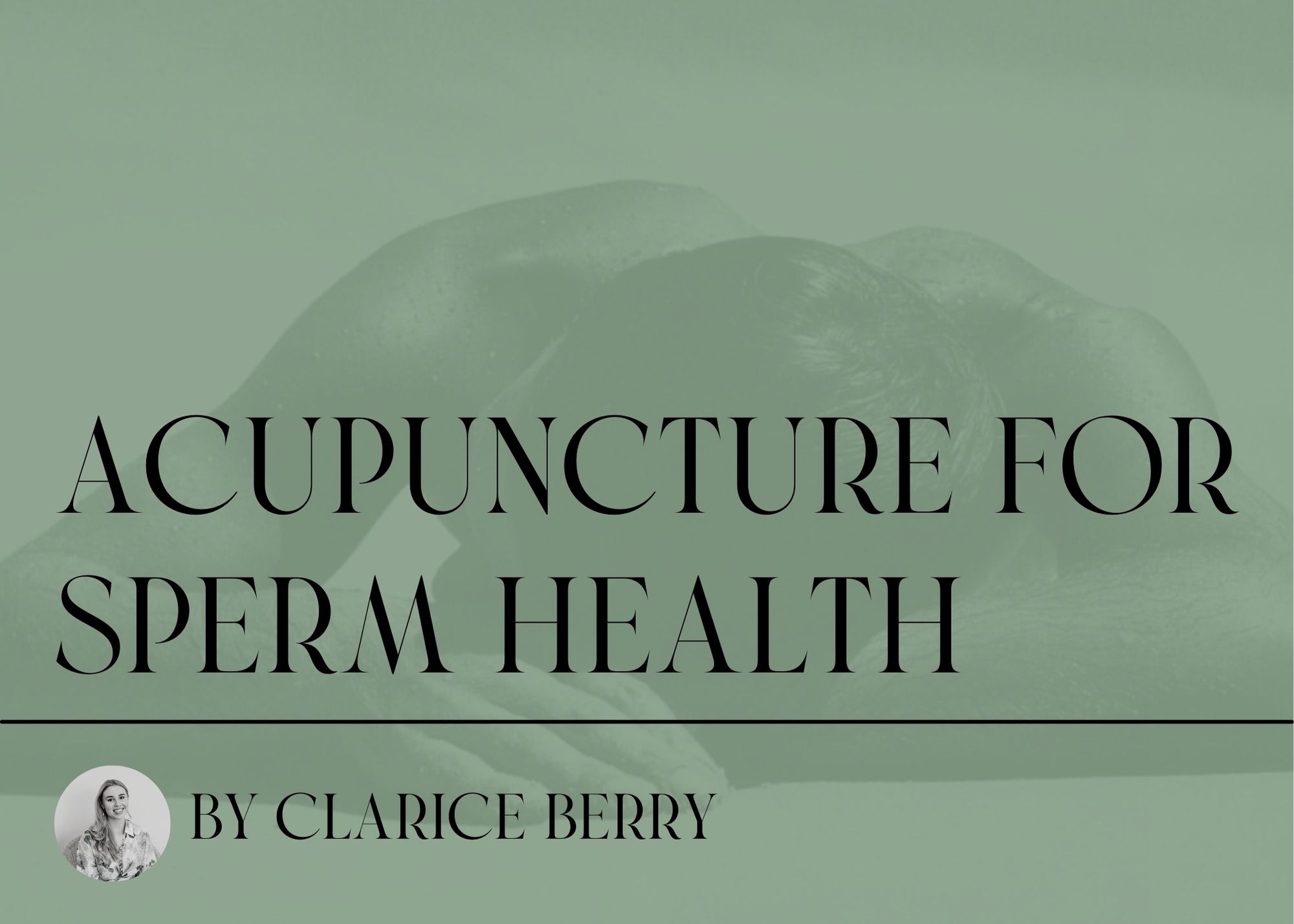The Dao Does ~ How does Acupuncture support Sperm Health? ~
It takes two to tango!
Approximately 15% of the population faces infertility, with male factor infertility solely responsible for 30% of cases. Male-factor infertility can be due to several central, environmental, psych-emotional, genetic, idiopathic and obstructive causes that lead to poor sperm production and/or expulsion of the sperm from the reproductive tract.
The long-standing practice of Traditional Chinese Medicine has recognised the importance of enhancing both partners’ overall health and addressing male factor fertility to optimise the chances of conception, pregnancy, and full-term delivery of a healthy baby. Often in a traditional setting, women and men were prescribed Chinese herbal medicine, Chinese dietary therapy and weekly acupuncture treatments to support their overall health and well-being and support their fertility attempts.
The research supporting the effectiveness of acupuncture treatment for the improvement of sperm health is, unfortunately, subject to controversy amongst the medical community, mainly due to challenges in funding quality research, study design, sample size, and selection of appropriate controls, nevertheless, some promising small study results are indicating that acupuncture can improve several semen parameters.
What does the research tell us?
Siterman et al. conducted a study to evaluate the impact of acupuncture on 16 subfertile men exhibiting abnormal sperm parameters. The participants received acupuncture sessions lasting 25 minutes, twice a week, over 5 weeks. A month after the acupuncture sessions, a semen analysis revealed noteworthy enhancements in various aspects, including the total functional sperm fraction, percentage of viability, total motile sperm per ejaculation, and the integrity of the axoneme (a component in the tail of the sperm) Moreover, there was an observed increase in the fertility index compared to the values recorded before the acupuncture.
Gerhard et al. documented the outcomes of a 10-day regimen involving acupuncture and moxibustion (a herbal heat therapy), noting a mild yet significant enhancement in sperm motility post the seventh treatment. From the 1st to the 12th week following treatment, forward progressive motility rose from 21% to 26%, while total motility increased from 42% to 50%. Furthermore, there was a significant increase in serum concentrations of FSH, LH, and testosterone. Notably, the rise in serum testosterone levels correlated with the improvement in sperm motility.
Siterman et al. also explored the impact of acupuncture on individuals with very low sperm counts, including 5 oligozoospermic and 15 azoospermic men. After one month of acupuncture treatment, 67% of the azoospermic patients showed a significant increase in sperm count per ejaculation. In three cases, scanning electron microscopy revealed more than 20 sperm cells, and the remaining patients experienced a substantial rise in sperm count from zero to an average of 1.5 × 106 detectable by light microscopy. Notably, two individuals who underwent intracytoplasmic sperm injection procedures for IVF (ICSI) post-acupuncture successfully achieved pregnancies.
Consequences on Mental Health
Unfortunately, the support given by industry professionals and the resources available on the psychological impact of male factor infertility has been somewhat neglected. Stereotypically, throughout history, women have been ‘presumed’ to desire children and therefore their experiences of grief associated with infertility have been generally more socially accepted and supported within a clinical environment. Men diagnosed with infertility have increased levels of stress and depression but unfortunately, they can often suffer in silence, having a major social and psychological impact. According to a 2003 study, some men experiencing infertility struggle to seek mental health support due to ensuring the needs of their partner are met foremost, thereby neglecting their own needs, and also feel ashamed to ask for help due to infertility associated with the stigma of reduced masculinity, sexuality and biological purpose.
Those experiencing male-factor infertility should ensure they feel comfortable with their healthcare practitioners to speak freely about their mental health, as a mental health assessment can often be overlooked in a fertility clinical setting. According to a study by Peterson et al., men coped with stress associated with infertility through strategies such as self-distancing, controlling behaviour and planful problem-solving strategies.
Men must have a sense of social support within their communities, family and friends. Partners and primary health physicians play a significant role in fostering non-judgmental conversations about infertility especially when dealing with sensitive matters of sexual performance issues such as ejaculatory dysfunction or the necessity for couples to use donor sperm.
Similarly, according to Arab J Urol’s 2018 literature review, ensuring men have a greater recognition of modifiable lifestyle factors that may be affecting their sperm quality can provide a sense of control over their infertility experience which may improve mental health scores and sperm analysis results long-term.
There a a few key factors that can be addressed and minimised to help protect sperm against oxidative stress and DNA fragmentation which can lead to poor quality sperm and sub-fertility; including excessive alcohol consumption, obesity (BMI > 30), illicit drug use, and certain medications (anti-androgens, steroids, and opioids) and environmental exposure to pollutants, heat, smoke pesticides, heavy metals, and electromagnetic radiation from technology, such as WIFI, laptops and phone use (please do not keep your phone in your pocket!)
The Dao Health emphasises the importance of comprehensive care in male fertility and concerns related to sperm quality. During an initial acupuncture consultation and treatment, certain antioxidant supplementation will also be discussed as there is good evidence that multi-antioxidant oral supplementation (vitamin C and E, L-carnitine, coenzyme Q10, zinc, selenium, and N-acetyl-cysteine) can improve seminal parameters and DNA integrity, similarly will we discuss the importance of Chinese dietary therapy, lifestyle modifications, mental health support and the potential use of Chinese Herbal Medicine.
~
By Clarice Berry (BHlthSc (TCM), MRepMed (Current)
References:
I Gerhard, I. Jung, F. Postneek
Effects of acupuncture on semen parameters/hormone profile in infertile men
Mol Androl, 4 (1992), pp. 9-24
S. Siterman, F. Eltes, V. Wolfson, H. Lederman, B. Bartoov
Does acupuncture treatment affect sperm density in males with very low sperm count? A pilot study. Andrologia, 32 (2000), pp. 31-39
S. Siterman, F. Eltes, V. Wolfson, N. Zabludovsky, B.Bartoov
Effect of acupuncture on sperm parameters of males suffering from subfertility related to low sperm quality
Arch Androl, 39 (1997), pp. 155-161
Daren J Katz. et. al, The Royal Australian College of General Practitioners, 2017, Male infertility – the other side of the equation, Australian Family Physician. Available at: https://www.racgp.org.au/afp/2017/september/male-infertility (Accessed: 23 October 2023).
Jensen TK, Jacobsen R, Christensen K, Nielsen NC, Bostofte E. Good semen quality and life expectancy: A cohort study of 43,277 men. Am J Epidemiol 2009;170(5):559–65.

